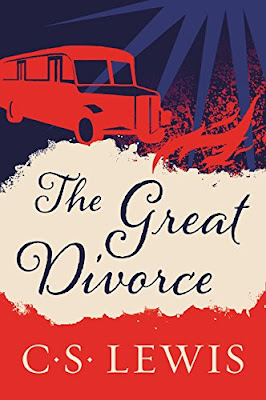How to View Christians of the Past
The other day, I ran across someone who said something along
the lines of: "we should not to listen to the Calvins, the Luthers, the
Augustines...etc.--when we have the Bible as the perfect and inerrant Word of
God. Man is prone to error, God's Word is all we need."
And as someone who has found much value in the Christians who
have gone before us, this prompted me to ask the question: At what point does
our love for the very rich Christian history and the "developments, or
applications of the Word of God over the course of time" become misguided?
Is this not what the Catholics do? They let their love for tradition and the
role of the church replace and add to the Word of God. They view the church's
interpretation as the final authority, the church's later councils and
subsequent statements as authoritative.
We cannot do that.
So, the question is: as Bible believing Christians, what
role should Christians throughout church history (and specifically their
teachings) have on us today? Clearly their words aren't Scripture. And clearly
these individuals of the past have all erred, even said (many) things that are
false. Augustine had a high Mariology. Luther spoke ill of the Jews, persecuted
Anabaptists, and believed in the baptism of babies. Calvin had similar
baptismal misunderstandings and was likewise a sacralist. Should we just ignore
their writings entirely and "just" stick to Scripture?
Let me be clear: We have to be first and foremost people of
the Book. There is no getting around this. We have to know the Bible and hold
it so much higher, no, miles higher than any other work of man. This Book has
to be our food, and our drink. We have to hide its Word in our heart and view
everything we see through its lens.
But the reason, in part, that we have this understanding of
Scripture is due to the recovery of its centrality by the reformers and those who have gone before us.
Because none of us are a-traditional. None of us are
untouched by the thought and developments of men of the past. If it were not
for Luther and Calvin, men who returned to the central teachings of Scripture
and the early church, would we be so wise and discerning in ourselves to come
to those same conclusions in our own day? I presume not. We cannot delude ourselves into thinking that our understanding of Scripture (Sola Scriptura), our understanding justification by faith alone, by grace alone...etc. would somehow be unchanged today
if it were not for the work of men throughout history and their recovery of
Biblical truth prior to our day. To say so would be staggeringly arrogant.
The truth is we are indebted to imperfect figures of the
past. We do not worship them, we do not hold their teachings on the same level
of Scripture; we must be aware of their individual shortcomings--but we have to
appreciate that without their legacy of faith our understanding of truth would
be vastly different. As Peter of Blois said of the men before him, "We
are like dwarfs standing on the shoulders of giants; thanks to them, we see
farther than they. Busying ourselves with the treatises written by the
ancients, we take their choice thoughts, buried by age and human neglect, and
we raise them, as it were, from death to renewed life." It is that legacy
of faith we must treasure, that returning to truth in the midst of
error that must be celebrated.
We can also take the framework many of these men recovered
in the authority of Scripture alone--and take it further in our application
than they were able to in their contexts. Where Calvin and Zwingli blended
church and state due to hundreds and hundreds of years of the unholy mixture, we
can deviate because their most central recovery of the Bible's authority
disagrees with them. Where Luther got the Eucharist wrong (thinking the body
and blood of Jesus Christ were present in the elements), we can right the ship
because of the more fundamental understanding of Scripture he passed on. We can
continue the "Spirit of the Reformation" in areas where the reformers
themselves could not arrive in their own lifetime.
Furthermore, we can glean from their teachings. No different
from the sound preaching and sound teaching so precious throughout the New
Testament, the study of men who held the Bible high can be edifying to our spirit
and can lead us closer to Christ. You can make accusations about John Calvin,
but you cannot say that he did not know His Bible (Scripture absolutely
permeates the pages of the Institutes). You can say that not all of Martin
Luther's conclusions were accurate, but any reading of his will affirm that he
was anything but light on Scripture.
So like any teacher or preacher today, we can consult their
works. We can glean from their often deep interpretations of Scripture and
wrestle with their various conclusions. It is also helpful to see from the
outside looking in, how they applied the Bible to their own very different
contexts--how they broke away from cultural and national norms in order to live
subject to the words of God. There is much, so much that can be learned from
their work (not to mention their personal examples as well).
But they are not apostles. Their writings are not Scripture.
They are flawed men. Thankfully we can now look back and hold their teachings
critically against the lens of Scripture--a privilege we owe in part to them.




Comments
Post a Comment